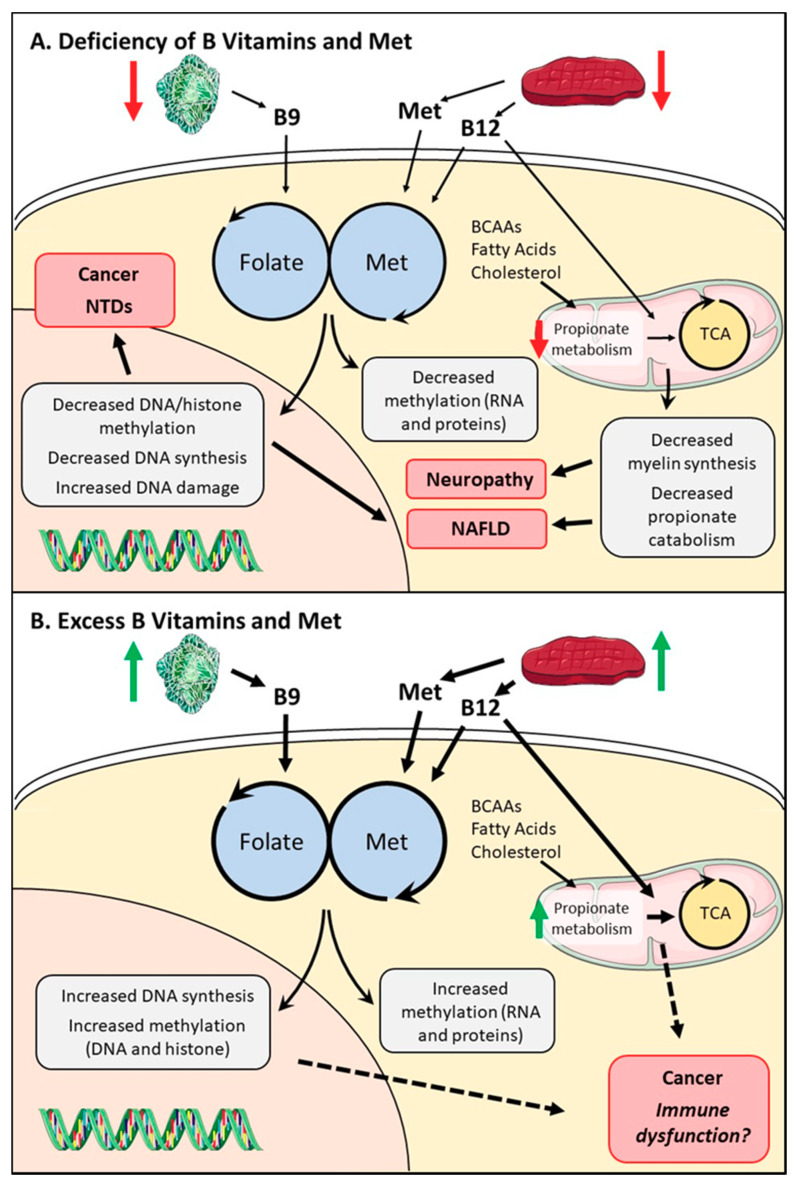Figure 2.
Systemic effects of altered micronutrients in one-carbon metabolism. (A) Reduced folate, methionine, or B12 can cause a decrease in one-carbon metabolism output, leading to decreased DNA synthesis, increased genomic instability, and decreased methylation potential. This can promote the development of neural tube defects (NTDs), non-alcoholic fatty liver disease (NAFLD), and cancer (specifically colorectal cancer). Reduced B12 also decreases activity of the propionate catabolic pathway through decreased methylmalonyl-CoA mutase (MUT) enzymatic activity, leading to decreased myelin synthesis, increased cellular stress, and disrupted tricarboxylic acid (TCA) cycling. These factors influence the development of neuropathies and promote NAFLD. (B) Effects of excess folate, methionine, and B12 are less understood, but increases can promote cell proliferation and can increase SAM (S-adenosylmethionine) levels, which allow cells to maintain their methylated states. This could lead to the development of cancers as maintenance of methylation is important for some malignancies. Excessive folate also disrupts normal hematopoiesis, possibly through increased one-carbon metabolism.

